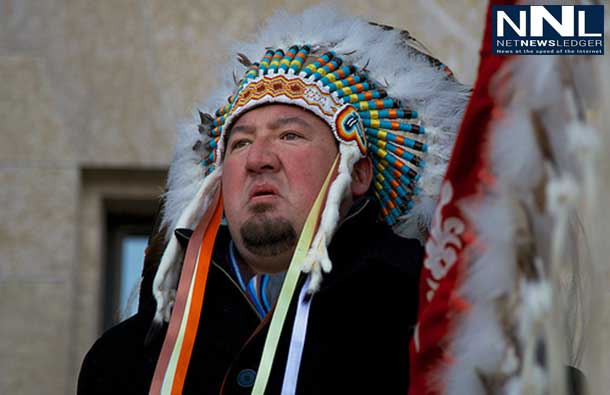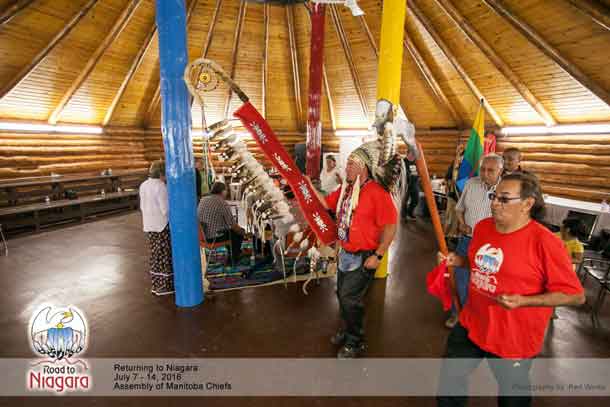
TREATY ONE- Manitoba’s highest court has delivered a historic and precedent-setting decision which recognizes that First Nations families and children are disproportionately affected by delays in obtaining court hearings following the apprehension of children by child welfare authorities, and that they suffer unique and specific harm from that delay.
“We are pleased with the decision acknowledging the hardship faced by First Nations children and families when working to reunify our families. It was critical for the Courts to acknowledge the impacts and long history that First Nations people have in fighting to bring their children home. We at all cost need to prevent yet another generation of children from the grasps of institutionalization,” said Grand Chief Derek Nepinak.
The Manitoba Court of Appeal allowed the Assembly of Manitoba Chiefs to present written and oral arguments at the hearing of Manitoba (Director of Child and Family Services) v. H.H. and C.G., 2017 MBCA 33, an appeal involving a non-Indigenous family fighting to get their child back and challenging lengthy court delays. The Assembly of Manitoba Chiefs’ written arguments before the Manitoba Court of Appeal included the following statements:
3. Nearly 90% of all children in care in Manitoba are Indigenous. Many of them are seized at birth and placed in non-Indigenous homes pending the outcome of post-apprehension hearings. Delays in post-apprehension hearings result in these children being raised outside of the culture, language and traditions of their families and communities.
4. The Truth and Reconciliation Commission concluded that Canada’s child-welfare system has simply continued the assimilation that the residential school system started and “[t]he child welfare system is the residential school system of our day’:
32. The dramatic overrepresentation of First Nations children in the child welfare system means that they and their families bear the brunt of the delays in post-apprehension hearings. The devastating legacy of colonialism, residential schools and displacement of First Nations peoples, when combined with earlier and more frequent intervention by child welfare authorities, makes those delays uniquely and specifically harmful to First Nations people.
33. The opening statement of the Report of Aboriginal Justice Inquiry of Manitoba was “The justice system has failed Manitoba’s Aboriginal people on a massive scale’: Delays in post-apprehension hearings represent a further example of Manitoba’s judicial system failing First Nations families and children on a “massive scale“.
In response to the arguments made by the Assembly of Manitoba Chiefs, Justice Burnett stated on behalf of the Manitoba Court of Appeal:
[88]7 . The vast majority of apprehensions in Manitoba involve Indigenous children. Because of such over-representation, any delay in post-apprehension proceedings has had, and continues to have, a disproportionate impact on First Nation children, results in First Nation children being raised out- side their culture, traditions, language and community, leads to cultural erosion (which leads to assimilation) and results in the overrepresentation of Indigenous children in the child welfare system assimilation and results in the overrepresentation of Indigenous children in the child welfare system. These additional and significant impacts cannot be ignored and reinforce the need for prompt post-apprehension hearings. (pages 35 – 36)
“This momentous decision meaningfully addresses the many significant issues for First Nations families who are involved in Manitoba’s child welfare system. Many families are forced to wait for over a year before they can challenge the apprehension of their child and the impact of those delays on First Nations families and children is absolutely devastating. Expedited court dates are critical for families. When children are apprehended they immediately suffer grief and loss as they instantly lose everything they know. There needs to be measure in place that are fair and mitigate the harm to families. This is one step in the right direction to prevent unnecessary hardship. We need to think of children counting sleeps until they get to g home when decisions are made in Child Welfare” said Cora Morgan, First Nations Family Advocate.
“In a very clear statement the Manitoba Court of Appeal acknowledged the detrimental impact of delays in holding post apprehension hearings, on First Nations children, saying that such delays lead to cultural erosion and assimilation and result in the over representation of Indigenous children in the child welfare system. This may be the first time in Canada that a court, as opposed to an Inquiry or a Com- mission, has specifically acknowledged the detrimental impact of delays in the child welfare justice sys- tem, on Indigenous children. The decision makes a powerful statement about how child welfare matters should proceed in the justice system after a warrantless apprehension has taken place, paying particular attention to the impact of delays in the system, on First Nations children who, the Court acknowledged, are already disproportionately represented in the child welfare system,” said Sherri Walsh and Kevin Toyne, the lawyers who represented the Assembly of Manitoba Chiefs in the Court of Appeal.

